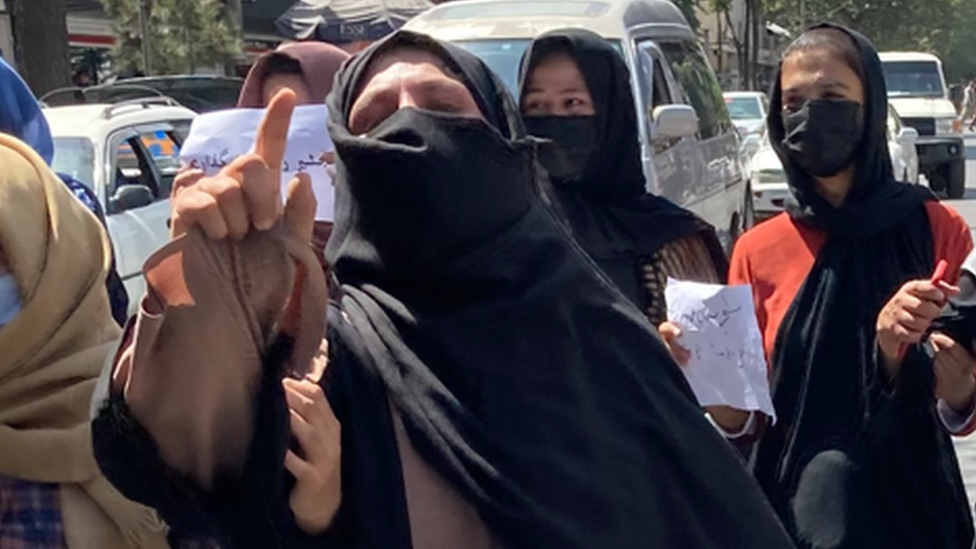Afghanistan: Taliban leader orders Sharia law punishments
- Published

Mawlawi Hibatullah Akhundzada is a political and religious leader who is the third Supreme Commander of the Taliban
Taliban leader Haibatullah Akhundzada has ordered Afghan judges to impose punishments for certain crimes that may include public amputations and stoning.
His spokesman said offences such as robbery, kidnapping and sedition must be punished in line with the group's interpretation of Islamic Sharia law.
When in power in the 1990s, the Taliban were condemned for such punishments, which included public executions.
They promised to rule more moderately when they retook power last year.
But since then the militant Islamist group has steadily cracked down on freedoms. Women's rights in particular have been severely restricted.
The Taliban's supreme leader said judges must punish criminals according to Sharia, if the crime committed is a violation of those laws.
The Taliban's spokesman Zabihullah Mujahid tweeted late on Sunday that the "obligatory" command came after Mullah Akhundzada met a group of judges.
"Carefully examine the files of thieves, kidnappers and seditionists," Mujahid quoted Akhundzada as saying.
The exact crimes and punishments have not been defined by the Taliban, but one religious leader in Afghanistan told the BBC that under Sharia law, penalties could include amputations, public lashings and stoning.
The order is the latest evidence the Taliban are taking a tougher line on rights and freedoms.
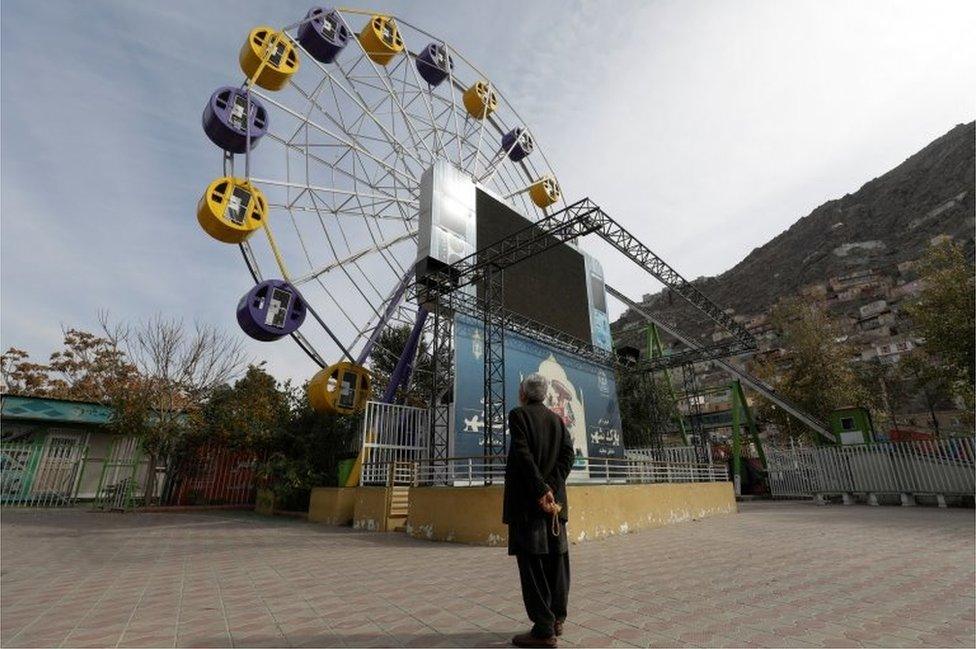
Women were barred from all parks and funfairs in Kabul last week
Last week they banned women from visiting all parks in Kabul, excluding them still further from public life. It has since emerged the ban extends to women in the capital visiting public baths and gyms, although the latter attracted relatively few women.
Entry to parks, baths and gyms was already segregated under Taliban rules on segregating people by gender. The group claims Islamic laws were not being followed.
Levels of violence have fallen across Afghanistan since foreign troops pulled out after 20 years of war, in the face of the Taliban advance in the summer of 2021.
But the group has faced numerous allegations that it is abusing human rights, including of opponents, women and journalists.
It has vowed there will be no brutal repression of women as there was when it was in power from 1996-2001, but half the population face severe curbs on what they can do.
Women are barred from going on longer distance journeys without a male chaperone. Teenage girls have still not returned to school in most of the country, despite Taliban promises to allow them to do so.
While some women still work in sectors such as healthcare and education, most were told not to go to work after the Taliban swept back to power.
In May women were ordered to wear the Islamic face veil in public. A number of women have been beaten for demanding their rights.
Billions of dollars in Afghan assets held abroad are frozen as the international community waits for the Taliban to honour promises still to be met on security, governance and human rights.
You may also be interested in:
Watch: Taliban fire shots to stop rare Afghan women's protest in Kabul
Related topics
- Published10 November 2022
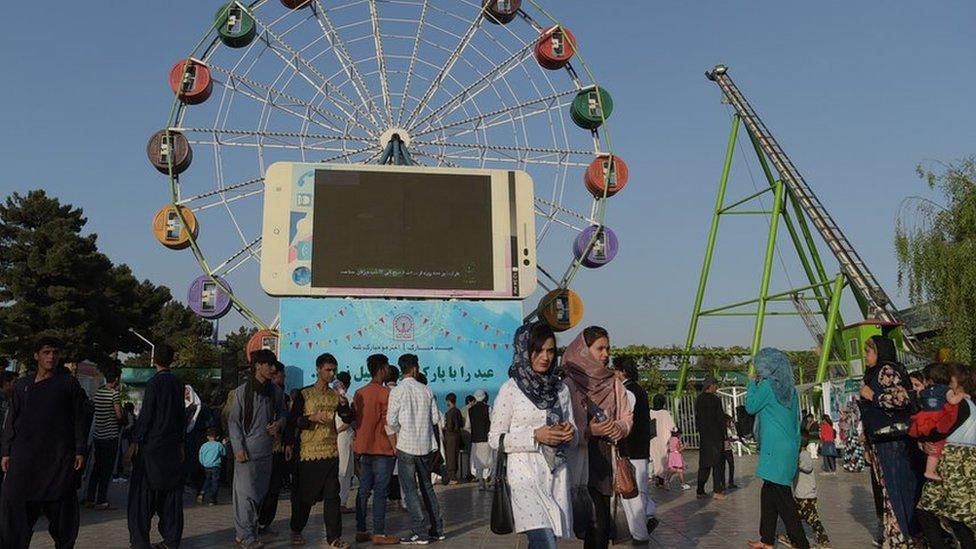
- Published1 July 2022

- Published15 October 2022
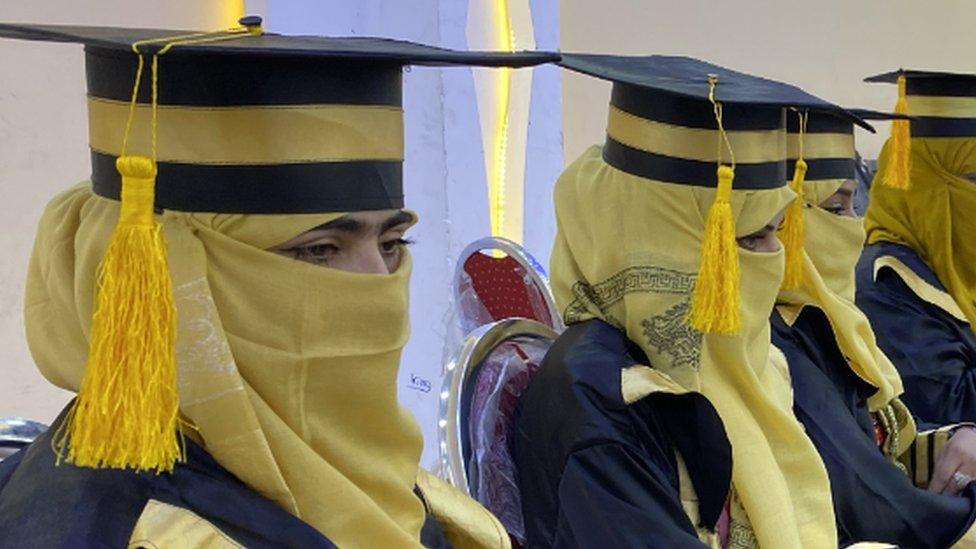
- Published23 March 2022
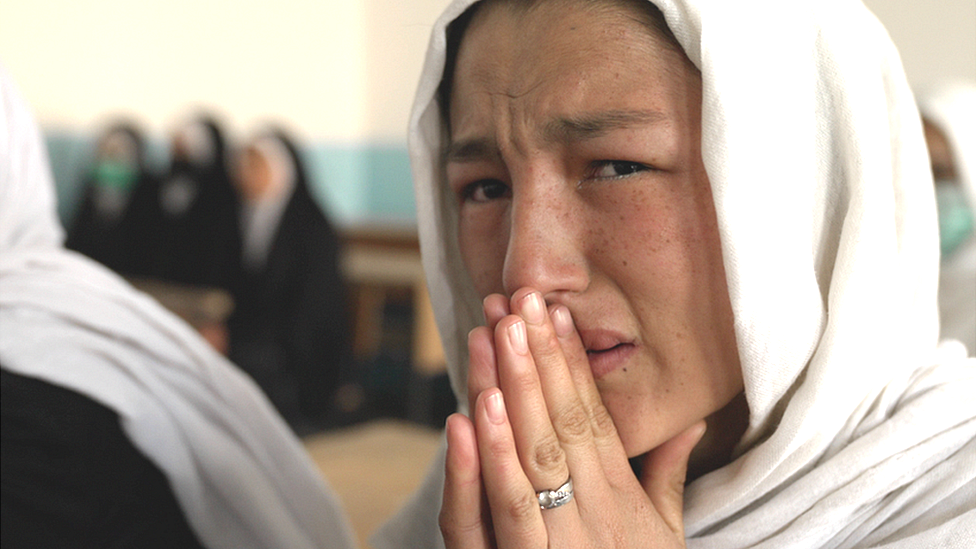
- Published10 September 2021
